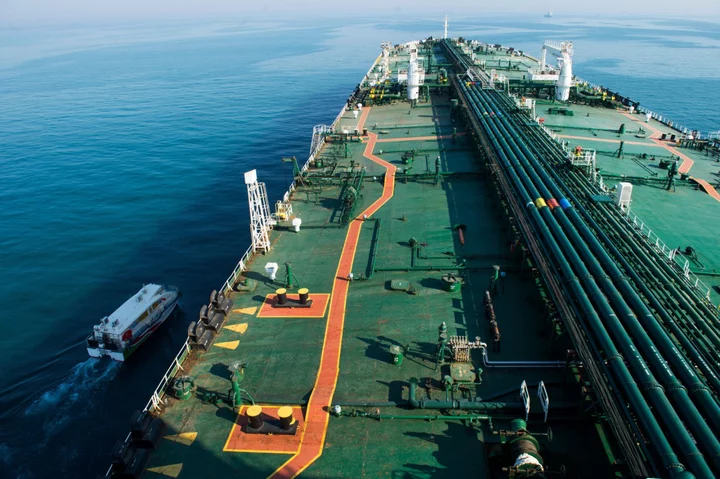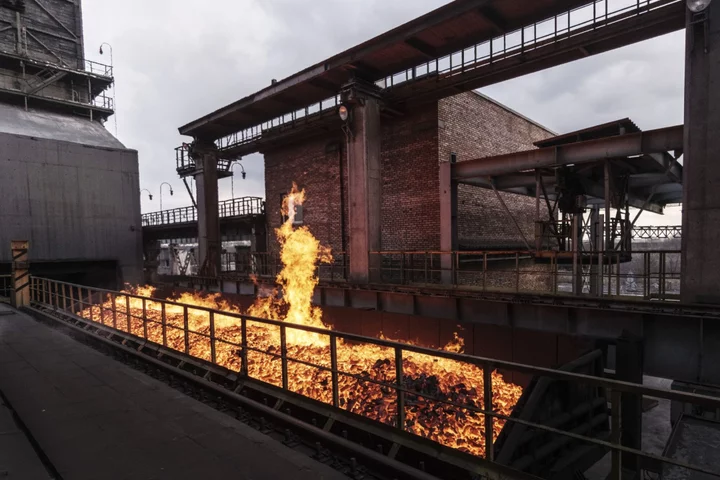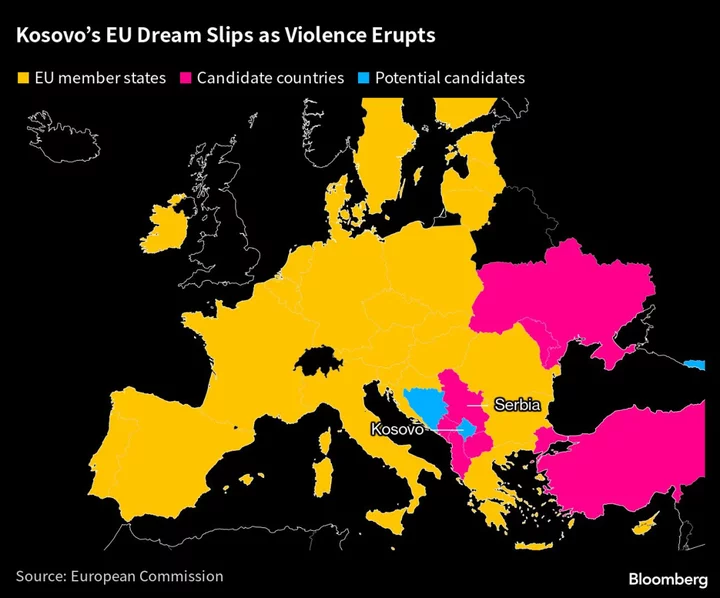Russia allowed a return to seaborne exports of diesel just weeks after imposing a ban that roiled global markets, taking other steps instead to keep sufficient fuel supplies at home.
Shipments can resume provided that the fuel is delivered to the nation’s ports by pipeline, according to a statement on the government’s Telegram account. Such flows to Russia’s western ports account for the bulk of exported volumes.
The move will be a relief to importers after Russia, the single largest seaborne exporter of diesel-type fuels, slapped a near-total ban on deliveries Sept. 21. That followed a surge in domestic fuel costs that stoked inflation — a potential political problem for the Kremlin ahead of March presidential elections.
The ban drove up European prices in an already tight market. Refiners around the world are struggling to produce enough of the fuel after Russia and Saudi Arabia cut supply of crudes rich in diesel, causing inventories to dwindle.
Read More: Saudis Keep Pressure on Oil Market With November Price Hikes
The updated regulations are set to free up about 90% of pre-ban seaborne volumes for export, or some 630,000 barrels a day, according to estimates from Viktor Katona, head crude analyst at market intelligence firm Kpler.
Yet the new rules stipulate that producers must keep at least 50% of their diesel output at home. Taking major exporter Surgutneftegas PJSC as an example, the company would need to hold on to around 55,000 barrels of the daily volumes it used to sell abroad, Katona said.
Transneft PJSC, Russia’s crude and product pipeline operator, didn’t immediately respond to a request for comment on current loadings.
Muted Reaction
Benchmark European diesel futures’ premium to crude oil — a key trader metric known as the crack spread — plunged to as low as $23.55 a barrel Friday, the weakest since July. It has since recovered and is still well above the seasonal norm. Market analysts hadn’t expected the ban to drag on for very long.
Exporters that don’t produce their own diesel but ship volumes purchased on the domestic market will now have to pay a prohibitively high export duty, according to the statement. That’s set at 50,000 rubles (almost $500) a ton, close to the current price of Russian inter-seasonal diesel on the nation’s SPIMEX commodity exchange.
The government is also restoring in full its subsidies to refiners to ensure domestic fuel demand is met and refineries get compensation for the difference between prices at home and abroad.
Read More: Russia’s Near-Record Payments to Refiners Dent Energy Revenues
It had halved the multibillion-ruble payouts last month to rein in budgetary spending burdened by the rising cost of the war in Ukraine. But the move was criticized by President Vladimir Putin, who said the cut aggravated the situation on the domestic fuel market.
--With assistance from Alaric Nightingale.
(Updates with analyst comment starting in fifth paragraph.)









